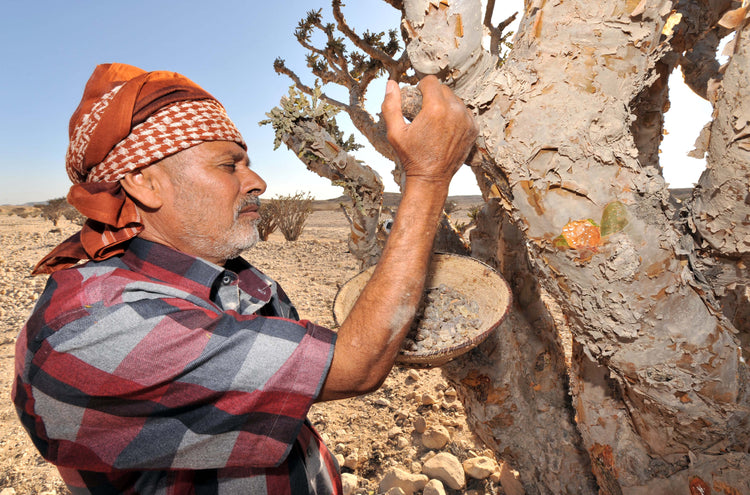Royal Frankincense
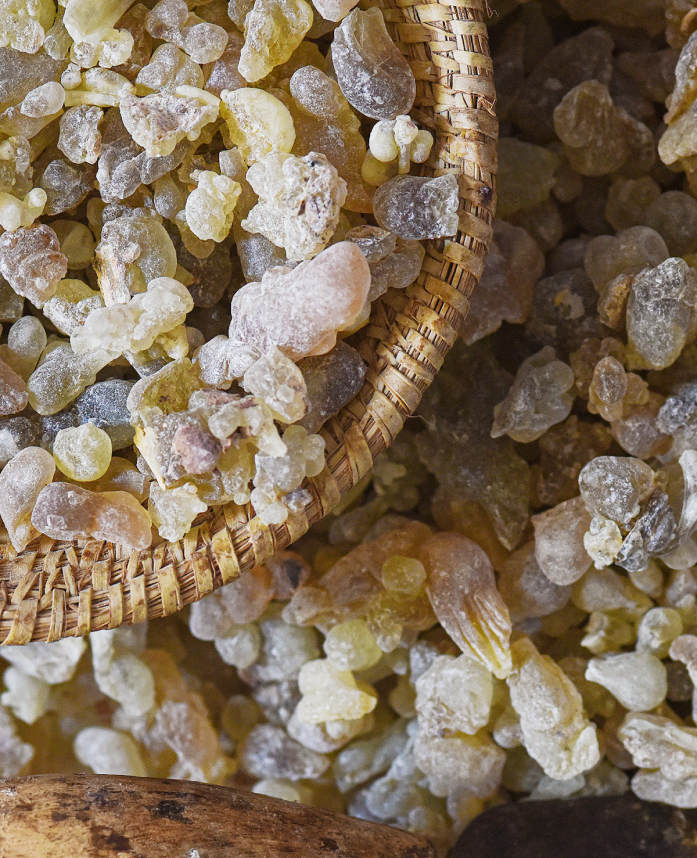
Royal Frankincense
AS CUSTODIANS OF WADI DAWKAH, WE SEEK TO PROTECT AND REDEFINE FRANKINCENSE, ONE OF HISTORY’S EMBLEMATIC NATURAL INGREDIENTS.
Amouage blends tradition and modernity by bringing a signature ingredient to High Perfumery.
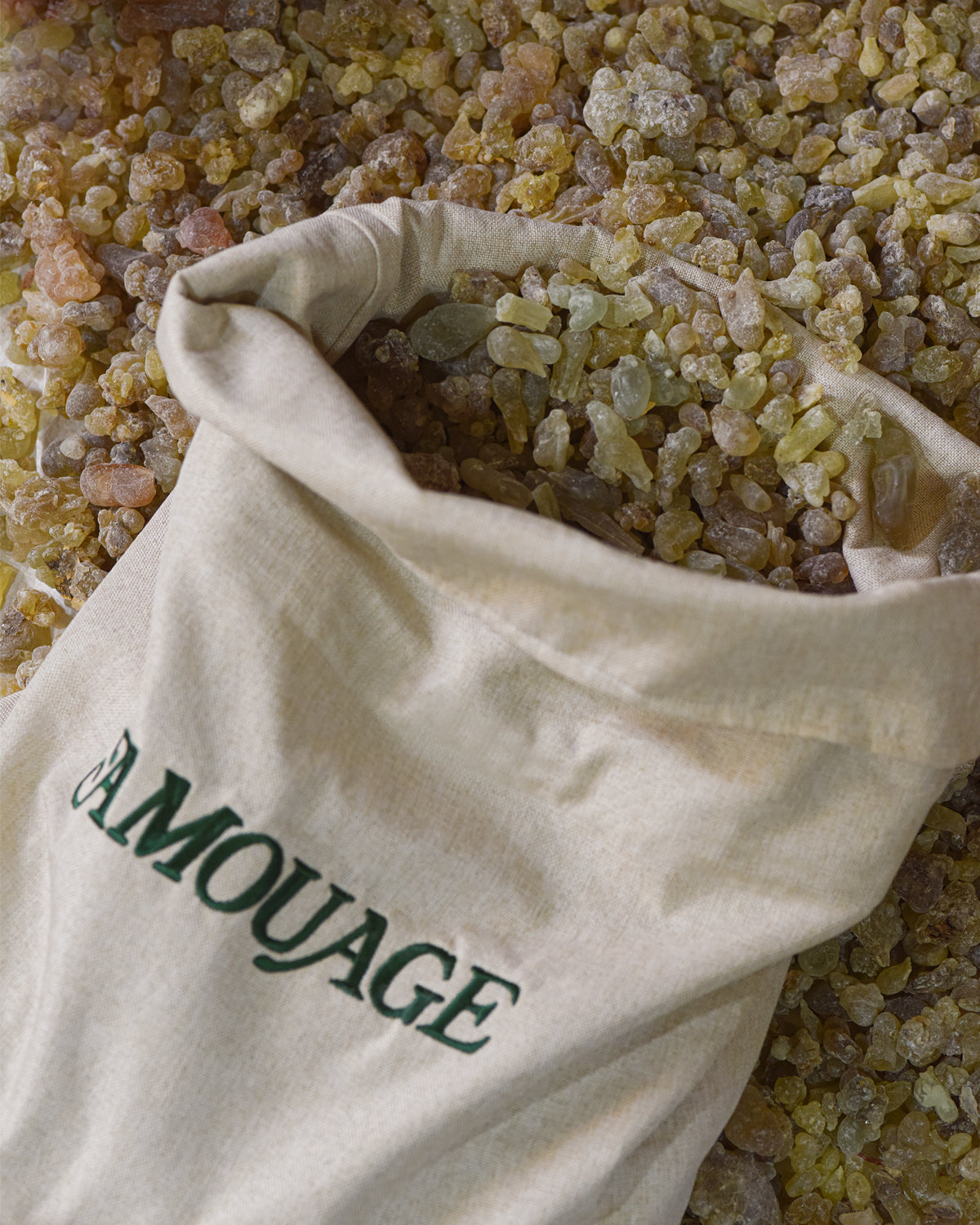
raising standards in the frankincense industry
Transforming Wadi Dawkah is a milestone in frankincense’s history.
Every step of the process will be integrated at Wadi Dawkah, from the trees to the resin, all the way through to the distillation. We can guarantee the frankincense quality from seed to bottle.
From the tree to the extract
-

TREE
The frankincense tree is geo-tagged and constantly monitored by our Omani team.
-

HARVEST
The harvest cycle starts after the Khareef (monsoon season) in September and ends in June. Each tree is harvested using a traditional tool called a Manghaf every 24 days and recorded on the smart-forest's database.
-

CLEANING
The resin is cleaned by hand to remove any remaining wood chips and grains of sand.
-

CLASSIFICATION
There are several qualities of frankincense resin produced: the rarest and highest quality has a light-greenish aspect.
-

DISTILLATION
We aim to distil frankincense within the Wadi Dawkah Manufacture & Visitor Centre, allowing the visitor to discover the process.
-

ESSENTIAL OIL
Frankincense oil is one of the Amouage fragrance house’s signature ingredients.
Best practices
Harvesting
FRANKINCENSE TEARS ARE HARVESTED BY HAND, A CRAFT WHICH HAS BARELY CHANGED SINCE IT WAS FIRST PRACTISED 3,000 YEARS AGO. TAPPING CONSISTS OF MAKING AN INCISION IN THE TREE’S BARK WHICH RELEASES AN AROMATIC MILKY SAP THAT FORMS DROPLETS BEFORE HARDENING.
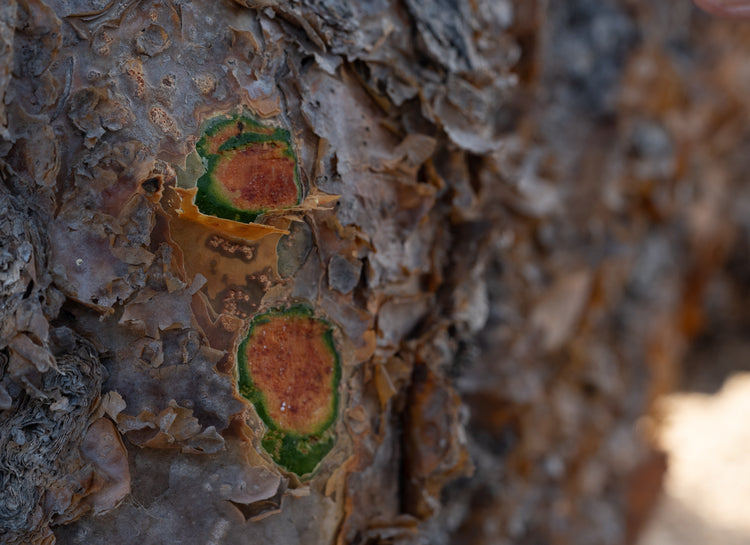
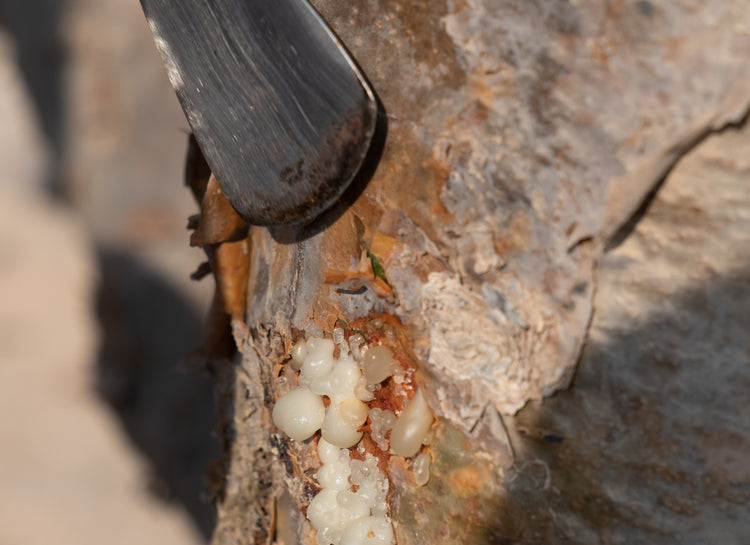
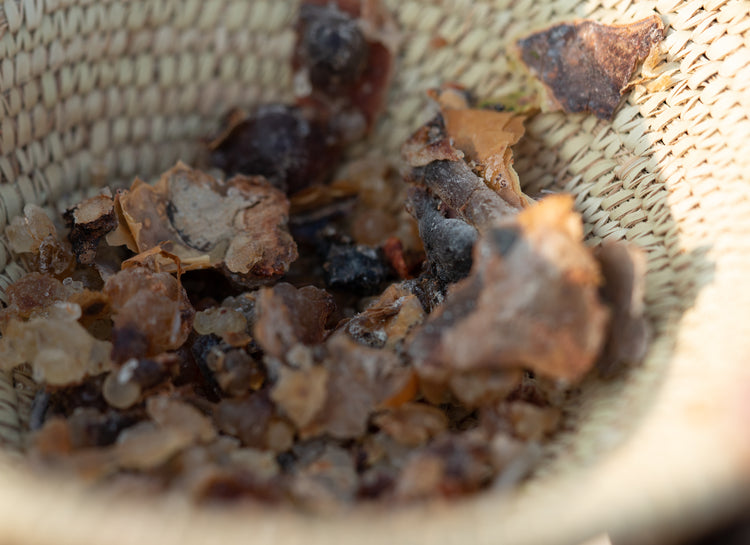
Watering
WITH THE OBJECTIVE OF PROVIDING THE SITE WITH THE BEST ENVIRONMENTAL CONDITIONS AND ALLOW THE TREES TO THRIVE, THE IRRIGATIONS CONDITIONS HAVE BEEN REFINED, SEEKING THE DELICATE EQUILIBRIUM BETWEEN UNDER- AND OVER-IRRIGATION.
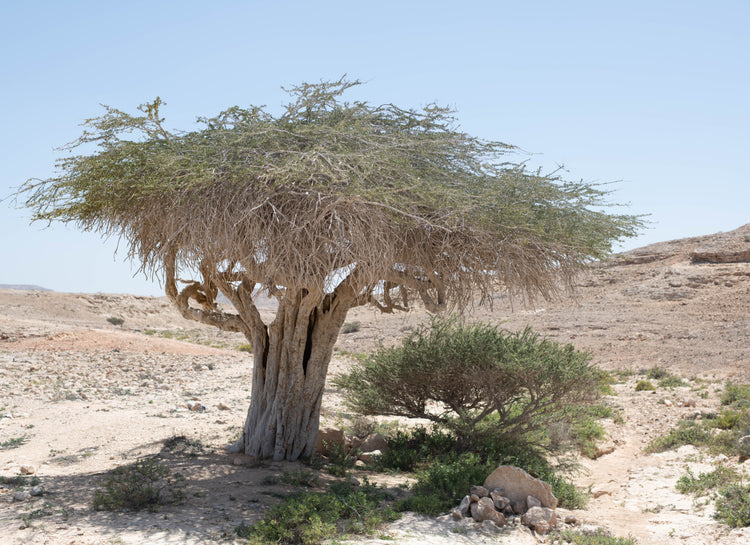
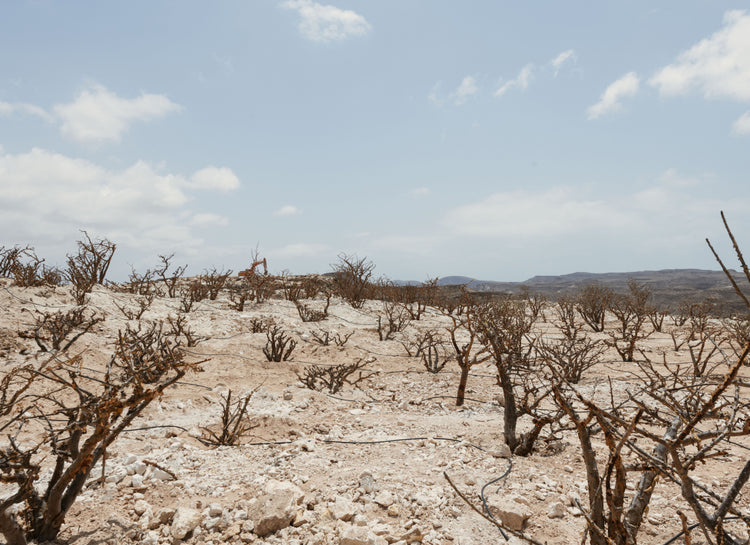
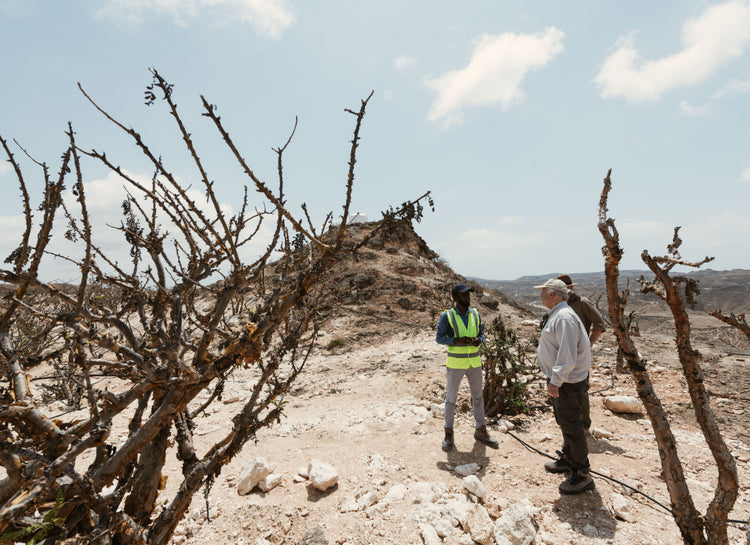
Labour
WADI DAWKAH’S FRANKINCENSE TREES ARE HARVESTED BY OUR OMANI TEAM, ALL OF WHOM GREW UP OR LIVE IN THE VILLAGES NEIGHBOURING THE UNESCO SITE.
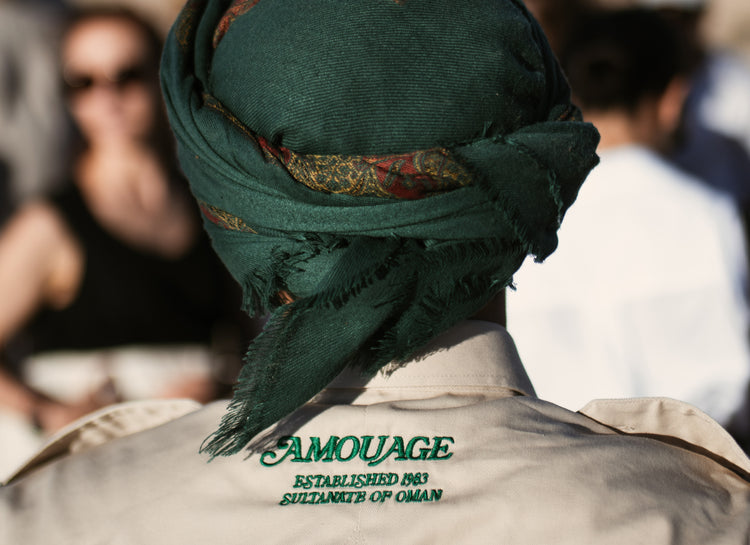
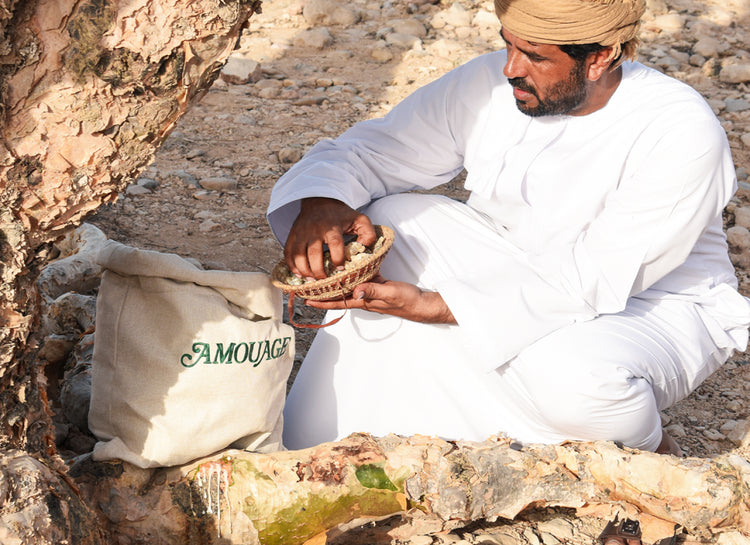
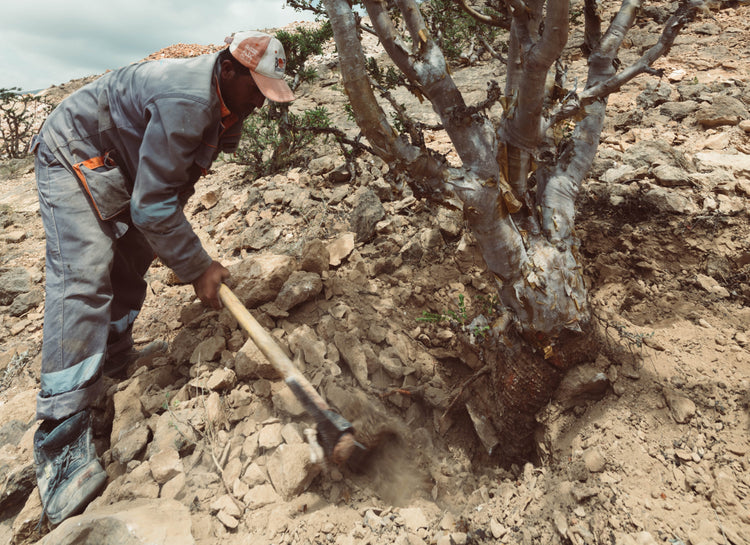
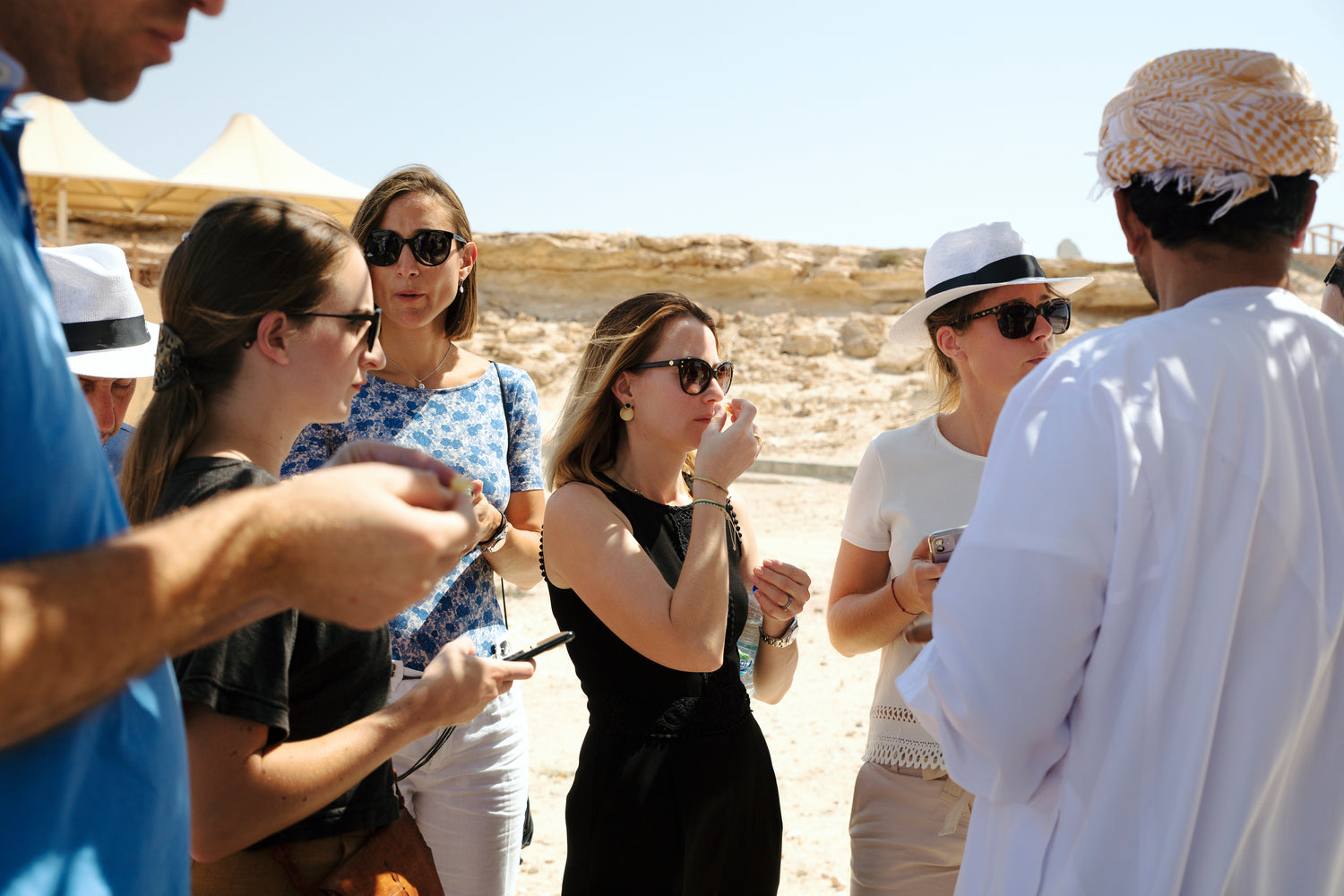
Working with world-class perfumers
Amouage collaborates with a host of perfumers from all four corners of the world. In a unique fusion of East and West, the perfumers can give free rein to their imagination as they fashion luxury fragrances based on the region’s iconic ingredients: rose, saffron, oud, musk, ambergris and, most importantly, frankincense, a defining element of the Sultanate of Oman’s opulent identity. Wadi Dawkah frankincense essential oil will soon be found in a new suite of Amouage fragrances.
“Omani frankincense is very pared-back, very refined. When I smell its resin, I feel like it plunges me into a bottomless crater. Elegant and full of depth, its fragrance sweeps me away and into infinity. It’s magical!”
Pierre Négrin, Perfumer
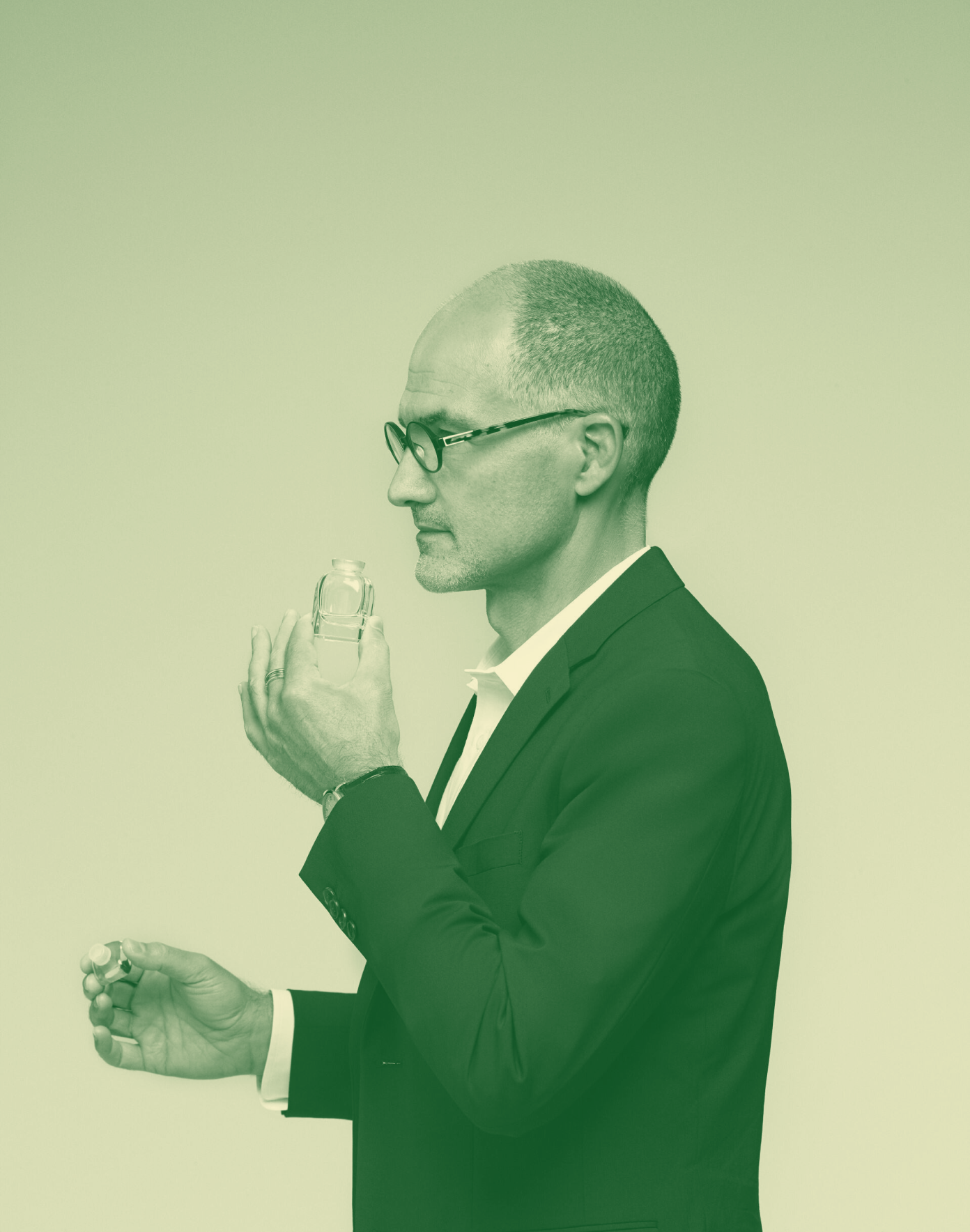
Perfumer’s insight
Pierre négrin
Over the course of a brilliant career, talented Grasse-based perfumer Pierre Négrin has created no less than 13 fragrances for Amouage. All of them are stamped with his passion for frankincense in all its forms.
The internationally recognized expert is integral to producing the finest quality of frankincense from Wadi Dawkah, with its fresh and elegant aroma, powerful yet delicate.
An ingredient of choice for the perfumer, the sparkling opening gives way to a sensual effect and a mysterious base centering on smoky, leathery notes. A frankincense with a unique profile, made up of pine and lemon facets, that can play every part in an olfactory composition.
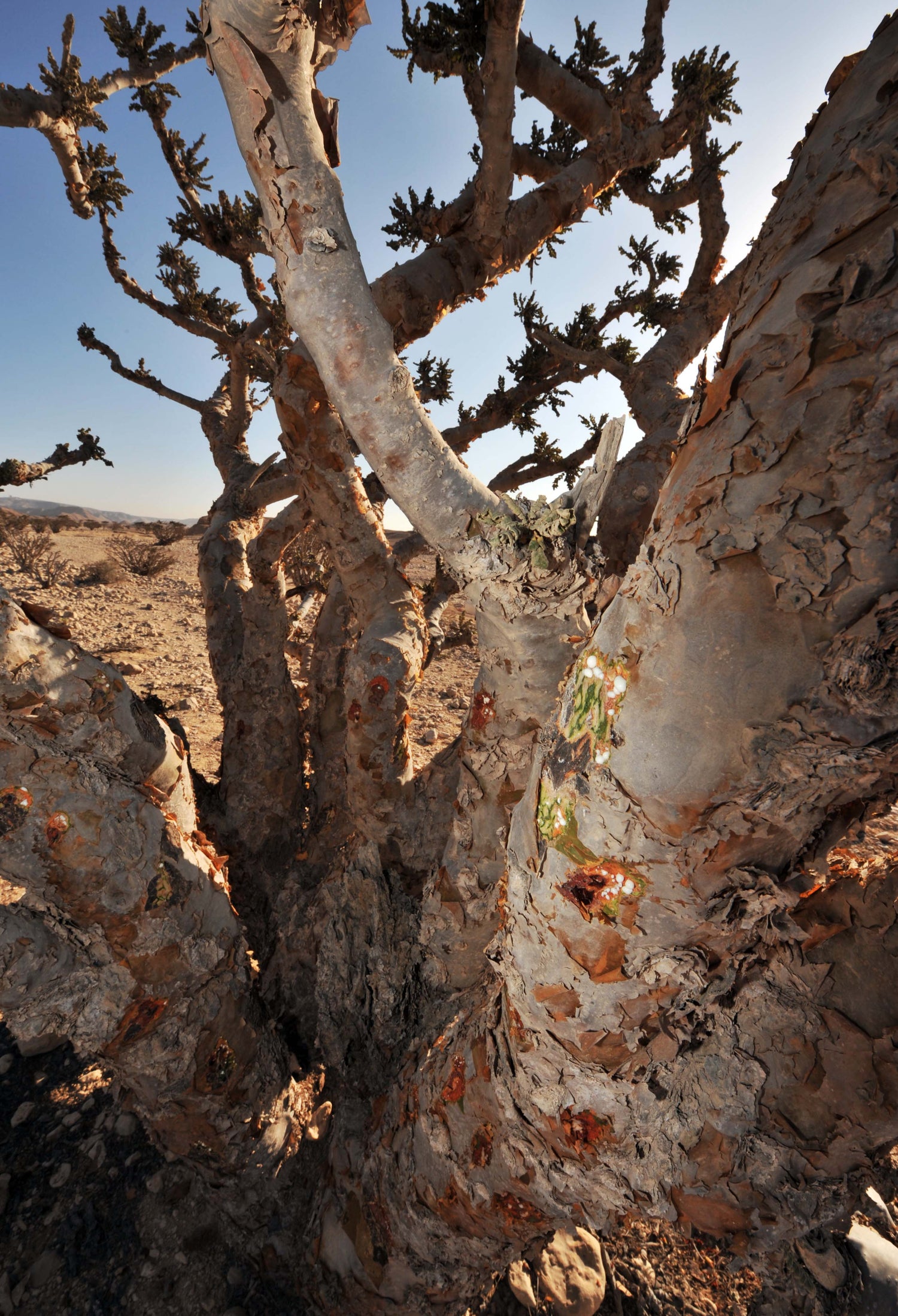
Making an ancient process sustainable
The secret to tapping is to spread out the areas where you cut the tree so that the incisions are far enough apart to avoid weakening it unnecessarily. The taller and bigger the tree, the greater the bark surface it has for making new incisions. An old tree can therefore supply more resin than a young tree and keeps producing resin throughout its life. Once the communities that exploit the perfume tree worked out the best methods for harvesting them, Boswellia sacra seemed to incorporate tapping into its life cycle.
